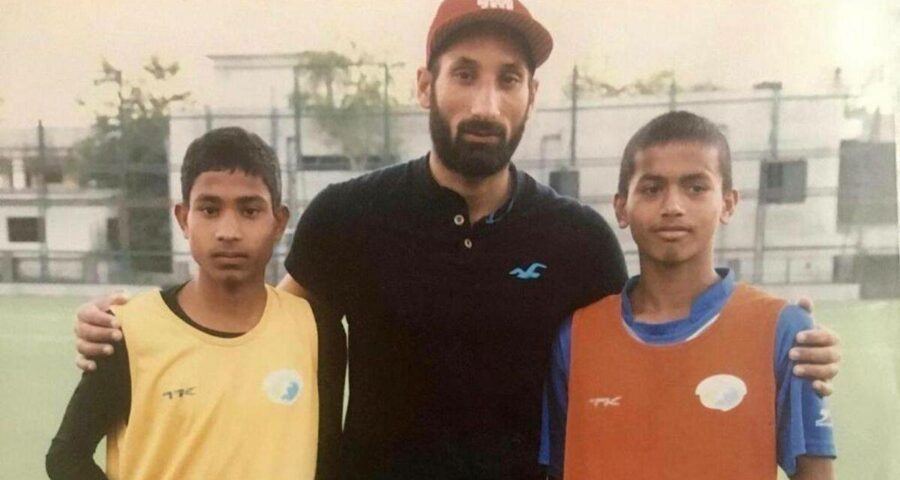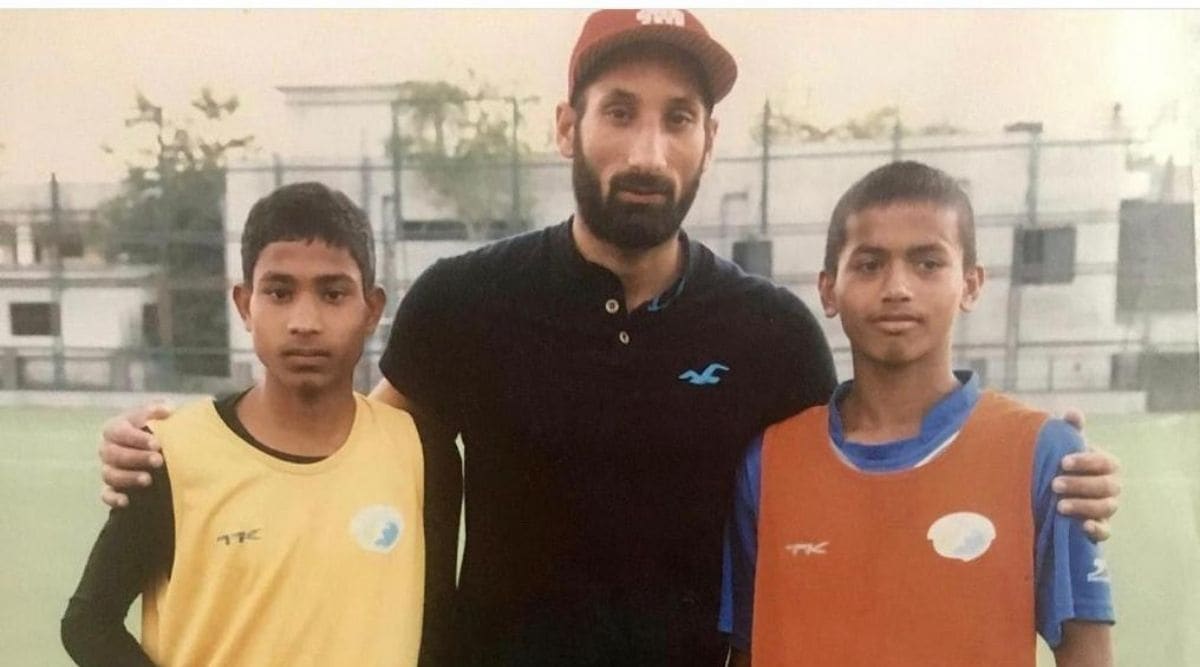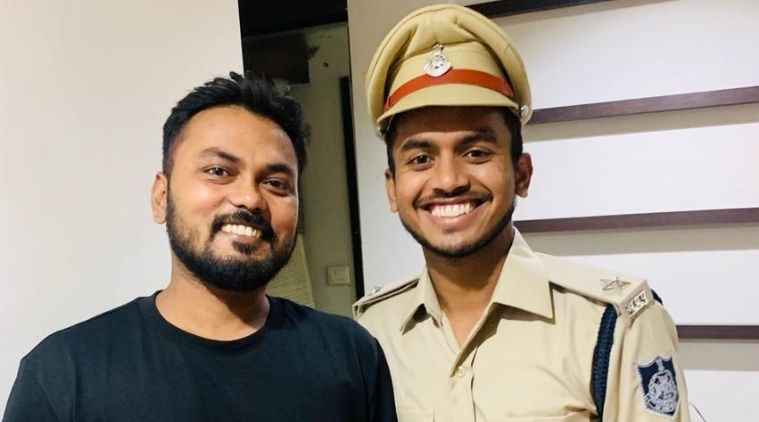With nearly 75 international matches, Youth Olympic silver and Olympic bronze under his belt, Vivek Sagar Prasad is out to underline his status as future India captain at the jr Hockey World Cup.
It was only by chance that India’s prodigious talent, Vivek Sagar Prasad, got introduced to hockey.
“He played a bit of cricket,” his elder brother Vidya Sagar says, “and some badminton.” At home, the two brothers obsessed over chess, a passion they share even today.
One evening, the priorities flipped. “There was a ground next to the ordnance factory near our house in Itarsi. It was mainly used to play cricket but a few people who worked at the factory used a small corner for hockey,” Vidya Sagar says.
Prasad reached the ground one evening to play cricket, but the hockey team was falling short of one player. “So, they told him to grab a stick and just stand in defence,” Vidya Sagar adds. “That’s how it began. Theek-thaak he hogaya sab uske baad se (He’s done okay since).”
***
READ |Hard hitter, tall forward and a poacher: the make-up of junior India hockey team
‘Theek-thaak’ is a very mild way of describing Prasad’s flourishing career.
Only 21, the second-youngest male player ever to represent India has already amassed close to 75 international appearances, scored more than a dozen goals, led India to a Youth Olympics silver, won a bronze medal at the Olympics, where he was one of the standout performers, named as International Hockey Federation’s rising star twice and is seen by many as the future captain of the national team.
Before that happens, however, the centre-half will have to help India’s U-21 team, of which he is the captain, navigate past a very tough Belgium side in the quarterfinals of the Junior World Cup on Wednesday. The kind of stage, Hockey India’s former high-performance director David John says, where Prasad will thrive.
“The occasion has never bothered him,” John says. “The bigger the occasion, the more he plays. He doesn’t shrink into himself. He actually wants to be the one to prove to the others that he is important, that he could execute (skills) under pressure.”
***
John knows. In 2018, the Australian and India’s then-coach Sjoerd Marijne took a leap of faith and selected a rookie 17-year-old for the tour to New Zealand – 17 years, 10 months and 22 days, to be exact. It made Prasad the second-youngest player ever to play for India, behind the player who eventually made way for him, former captain Sardar Singh, just by 11 days.
From Marijne to John and former junior team coach Jude Felix, everyone has been gushing over Prasad’s qualities – his fast decision making, ability to wrong-foot the taller, physically stronger opponents, continuous movements in the midfield, ability to score goals, quick hands, and leadership abilities.
In New Zealand, his debut tour, the shortest man on the field stood out as the team’s best player.
Shane McLeod – the best coach of the last decade, having taken Belgium to Olympic silver and gold, and a World Cup title in between – walked up to John and Marijne after India’s match against the European giants. “Who is this boy?” McLeod inquired, according to John. “He’s outstanding.”
***
The creative, attack-minded midfielder’s skills mesmerise the whole world now. But at the Prasad household, the younger son’s hockey exploits were kept a secret from the father, a primary school teacher who wanted his kids to focus on studies.
Prasad was only seven years old when he was asked to fill in as a defender by the group that played at the ground next to Itarsi’s ordnance factory. In an instant, however, he was smitten and started playing regularly with them, later becoming a part of the local team that travelled around the region to play matches.
“The family’s financial condition wasn’t that great, so our father was dead against any sporting activity. His target was to ensure we complete our studies and get a good job. Once, he even slapped Vivek for playing hockey,” Vidya Sagar, an engineer, laughs. “But since I was the elder of the two, his focus remained more on what I did. So Vivek continued playing without our father knowing.”
Prasad travelled on buses without tickets, borrowed hockey sticks and wore his brother’s shoes to ensure the family wasn’t burdened by his indulgence. His mother kept the back door of the house open for him to sneak in and out without his father knowing. No one in the family, though, imagined it was anything serious.
“One day, the coach of the local team he played for, came to our house to seek the permission of our parents to take Vivek for a tournament outside Bhopal,” Vidya Sagar says. “My father flatly refused. After a lot of convincing, he relented but only when I pointed out to him that the family won’t even have to spend a penny since all expenses would be taken care of.”
So, a young Prasad travelled to Akola to play against men twice his size and age. It didn’t bother him that the surface was rough and pebble-laden. With his deftness and anticipation, ball skills and body feints, Prasad glided on the grass field as if no one existed.
At the end of one match, Ashok Kumar, the former India captain and legendary Dhyan Chand’s son, met Prasad near the team dugout and asked: “Bade level par kheloge?”
***
In the years that followed, Prasad reached beyond the level even his mentor imagined. “But to reach this far, he has struggled a lot,” Vidya Sagar says. “Bohot ganda waala struggle.”
In November 2016, Prasad was battling for his life after a collarbone injury led to severe complications. “It was so serious that before the surgery, doctors got an undertaking signed from my father that basically implied that if things got complicated, he could even die,” Vidya Sagar says. “Thankfully, it went well. But for 7-8 days after the operation, he couldn’t eat a morsel. Those days were a nightmare. But throughout that phase, Vivek was always smiling, never lost hope.”
He made a comeback in mid-2017. And then, after a remarkable rise, there was an even more remarkable drop in form. At the 2018 Commonwealth Games, Prasad looked a shadow of himself; so poor that he was immediately dropped from the national team.
Vidya Sagar says the comparisons with Sardar started to play on the-then teenager’s mind and the pressure of expectations placed on him got to him as well, leading to a confidence crisis.
The slump lasted for almost a year, a period that saw him go back to the basics. Prasad returned to the junior side, leading them to a podium finish at the 2018 Youth Olympics and at the Sultan of Johor Cup in 2019. A string of consistent performances paved the way for his return to the senior squad, of which Prasad is now an integral part.
“He’s in a very good head space now,” Vidya Sagar says. “He was home after the Olympics for a while, got refreshed after a long season, we played a lot of chess and now he’s back on the field.” Where pieces are in place for him to make it big.
It’s now Prasad’s move.
Source: Read Full Article



